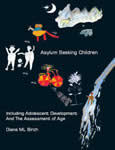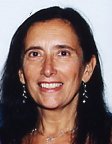A Beginning
Children suffer the traumas and injustices of warfare and conflict without the ability to influence or control their circumstances. As refugees they become the flotsam of society drifting from one inhospitable country to another in search of safety. They have been with us for generations, their numbers fluctuating and their distribution changing as the adult world decides who to wage war on next. The Russians had a word for them; 'Besprisornik', the 'dispossessed', a term coined when thousands of orphans wandered foraging for an existence after the Revolution. They have been the Somalis and Eritreans displaced by famine and civil war; the Kurds escaping persecution in Iran and Iraq; Hutus and Tutsis fleeing from each other ... and others too numerous to mention.

The group who most frequently come to our attention at present are the children from Afghanistan, sent to 'safety' by well meaning but ill-informed relatives and friends who dispatch them on journeys of unimaginable danger in the hands of ruthless agents. These 'people smugglers' demand extortionate payment for the privilege of starving and abusing the children right across the Middle East and through Europe and finally abandoning them as so much human jetsam in British sea ports and motorway service stations as they emerge from hiding in lorries.
Just one of their stories would bring any but the most hardened human being to tears, but these hurt young people have at times becomes so numerous and their experiences so unimaginably tragic, that listeners can enter a state of denial, not wanting to believe what is going on for fear that they may be obliged to do something about it. This emotional numbing blocks natural compassion and listeners hide behind rules and bureaucracy, convincing themselves that most Asylum-seekers are not genuine, that their stories are untrue and that these are not really minors, they are lying about their age.
The problems of young Asylum seekers are compounded by lack of information - those dispatching the youngsters do not know what happens to them on the way; the children do not know where they are going or where they are when en route; those receiving the unaccompanied minors lack information about their experiences and their history and particularly their ages.
It was in an attempt to improve knowledge of these children's lives and experiences; of their development and growth patterns; of their vulnerabilities and needs, that we began this piece of work. We set out to work with Asylum seeking children and young people to improve their circumstances in their country of refuge and to examine the situation in their country of origin in order to formulate strategies to help obviate some of the need for children to leave and become refugees in the first place.
In the UK we held workshops based on psychodrama, art and music to help them to explore their stories and to heal some of their wounds. In Afghanistan we looked at children's lives and experiences and examined children in their homes and schools to assess growth and development. This work, coupled with the results of over 800 individual assessments and medical examinations of refugee minors, has built up an incomparable wealth of information about refugee children.
In the workshops the young people were able to tell their stories in a unique way outside of the usual constraints and barriers of language. That is a good place to begin ...
Diana Birch, MD, has extensive experience acting as an Expert Assessor and Expert Witness in a variety of Family and Child Care Actions both civil and criminal. She is very experienced in working with young people and families, particularly in child neglect and protection, family disturbance, substance abuse and domestic violence.
©Copyright - All Rights Reserved
DO NOT REPRODUCE WITHOUT WRITTEN PERMISSION BY AUTHOR.












